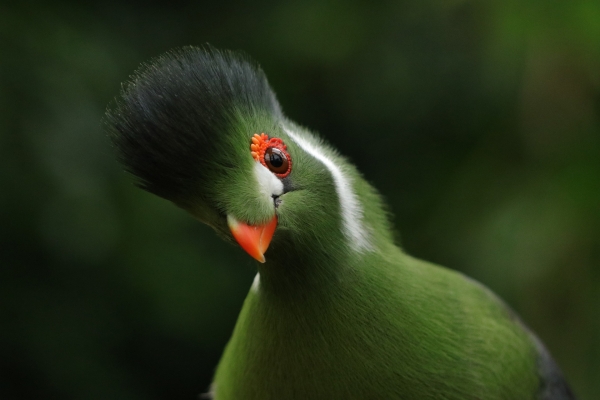Consider the globe, spinning silently in space. Its poles and its middle, the equator, remain relatively stable, thermally speaking, for the duration of Earth’s annual circuit around the sun.
Consider the globe, spinning silently in space. Its poles and its middle, the equator, remain relatively stable, thermally speaking, for the duration of Earth’s annual circuit around the sun. The spaces between — Earth’s temperate zones — experience seasons, with their characteristic temperature extremes.
It would follow that animals that evolved in each of these zones should match them, physiologically. We expect tropical animals to handle a certain degree of heat, but not wild swings in temperature. That seems to be the case for tropical ectotherms, or “cold-blooded” animals such as amphibians, reptiles, and insects. However, in a first-of-its-kind study of “warm-blooded” endotherms, a University of Illinois Urbana-Champaign team found tropical birds can handle thermal variation just fine.
“We tested the climate variability hypothesis, which predicts that organisms can't handle variation because they haven't seen it over evolutionary time,” said study co-author Jeff Brawn, professor emeritus in the Department of Natural Resources and Environmental Sciences (NRES), part of the College of Agricultural, Consumer and Environmental Sciences (ACES) at Illinois. “That may be true for ectotherms, but the evidence is just not there yet for birds in the Neotropics. Now we know they're able to handle it.”
Read more at University of Illinois College of Agricultural, Consumer and Environmental Sciences
Photo Credit: Marjonhorn via Pixabay




